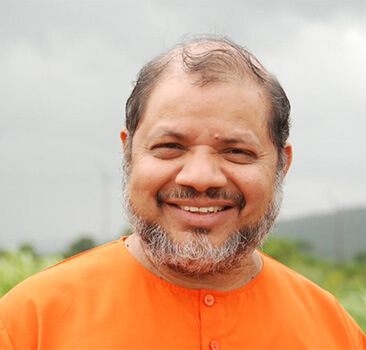Swami Tejomayananda
Hinduism believes in one God, one consciousness that pervades everyone and everything. What is the relationship between this one God which Hinduism believes in and the thousands of deities whom Hindus actually worship?
The power of the government is one, right? But there are many ministers and officers through whom that one power is expressed. In an ocean there are many waves, but all the waves are just different manifestations of the one ocean water. In the same way, there is one God, one infinite power and all the various deities are simply different manifestations of that one power.
And how does one reconcile the fact that there are so many gurus and swamis often suggesting completely different and seemingly contradictory routes to salvation?
The same disease may be there, but one patient decides to go to an allopathic doctor, another decides to go to an ayurvedic doctor, and a third trusts a homoeopath. For some people allopathy may be beneficial, and for others ayurveda may be more beneficial. So even though there are different kinds of doctors practicing different systems of medicines who appear to be prescribing different things, the goal is one and the same — that the patient should get cured.
In the same way, when you have so many different kinds of people with different natures and aptitudes, you need a variety of different methods and spiritual teachers to cater to them all. But the end goal — peace and happiness — is the same.
Some skeptics argue that India has seen more religious masters than any country in the world and yet we have so many social, economic, political and communal problems. How do you explain this?
It is because we have so many problems that we need so many masters! You see those people who have followed the teachings of the scriptures and the masters have attained nobility and peace. It is not the scriptures or the masters that will change the world, but whether people follow them or not.
Medical science has become so well developed. Yet why is there so much disease and illness even in the most advanced countries? Those who live clean lives and take their medicines are fine. But those people who don’t follow any diet and live totally unnatural lives fall ill. It’s not the fault of medical science!
It depends on whether people choose to follow medical science or not. Nowadays many people are just mechanically going to temples, praying, doing a few rituals — but the spirit of religion and the spirit of what religious masters have been saying is not being followed. And that is why problems are there.
How relevant can scriptures written thousands of years ago be relevant today?
The nature and cause of the world and the reality behind it hasn’t changed over the years, you know! Man is also the same now as he was then in terms of his likes and dislikes, anger, ambitions, frustrations, love, struggle, etc. And scriptures talk about man and his struggle. Therefore, they are as relevant today as they were then. In fact, more relevant today because man’s problems have multiplied.
Death in itself is actually not so frightening. It is the separation from our near and dear things and beings that is frightening. If death was to say that you can take with you your wife and kids, house and servants, cars and money — I don’t think people would be so afraid of death!
Courtesy Chinmayauk.org. The 71st birth anniversary of Swami Tejomayananda was observed on 30 June







